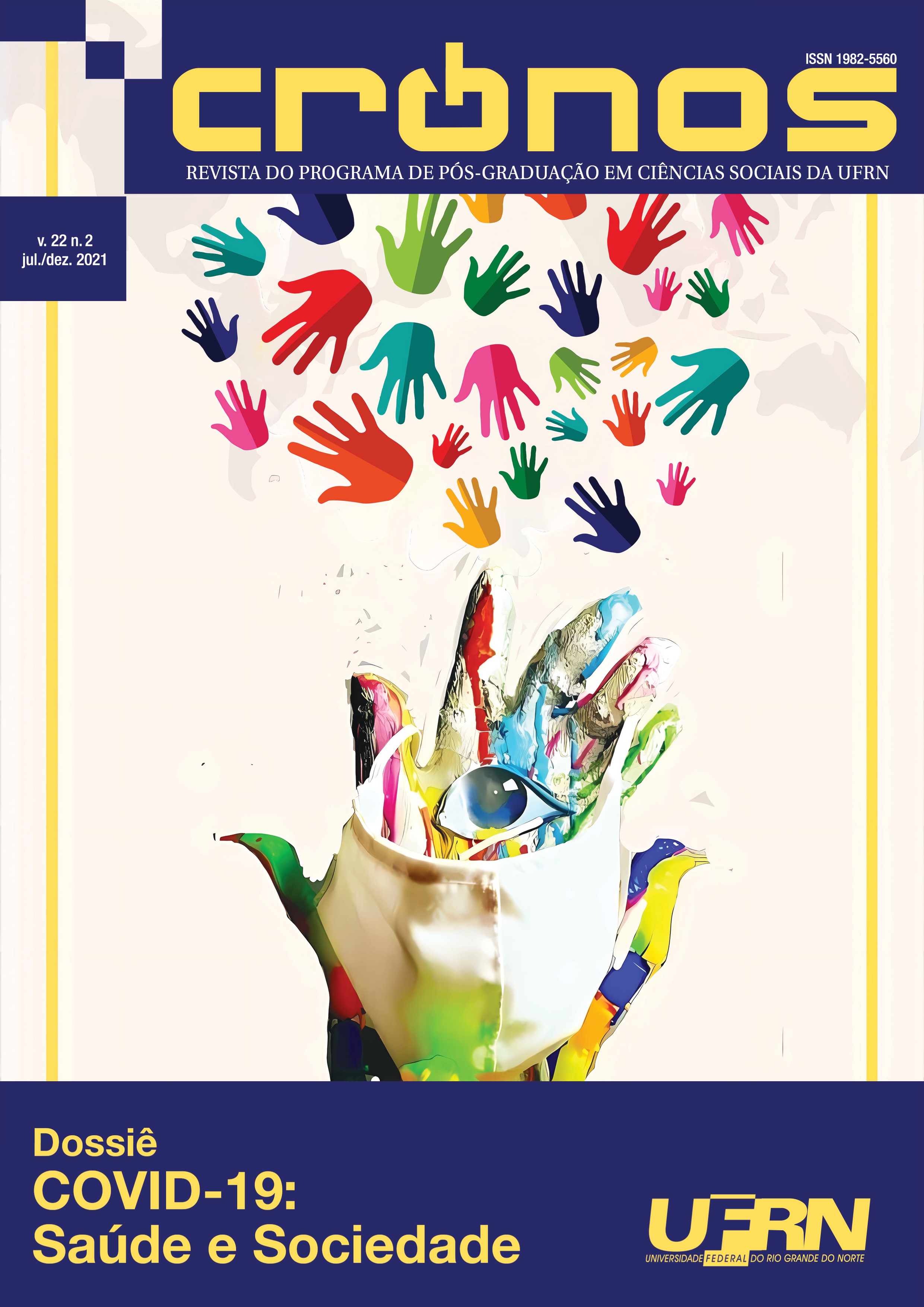SOFRIMENTO PSÍQUICO NO CONTEXTO DA CRISE SANITÁRIA DA COVID-19 NO BRASIL
DOI:
https://doi.org/10.21680/1982-5560.2021v22n2ID28830Palavras-chave:
Covid-19, Sofrimento psíquico, Pandemia, BrasilResumo
A crise sanitária da pandemia da covid -19 produz expressões de sofrimentos no Brasil e no mundo. Desde março de 2020 o país é desafiado pelo patógeno SARS-CoV-2, vírus mutante, potente, pouco conhecido e letal, que já levou a óbito mais de seiscentas mil pessoas, e infectou mais de 30 milhões de pessoas somente em solo brasileiro. Ademais, as consequências ultrapassam o campo da Saúde Coletiva e afetam as dinâmicas econômicas e sociais na contemporaneidade, seja pelas disputas de narrativas entre salvar a economia ou vidas, seja pela maior exposição dos sujeitos em desvantagem social e condições de vida ainda mais precárias. Consequências diretas que se tem percebido como efeito de dois anos de pandemia são o desenvolvimento e o agravamento de quadros do sofrimento psíquico, que se apresentam em parte considerável da população. Organismos internacionais, como a Organização Mundial da Saúde (OMS), além de psicólogos e psiquiatras têm considerado este fenômeno na condição de uma “epidemia paralela” ao se referirem ao quadro de adoecimento mental que tem se desenhado. Desse modo, trata-se de um assunto relevante pela sua influência na perda de qualidade de vida das pessoas e de suas famílias. Por tal razão, este ensaio tem como objetivo analisar como a emergência sanitária influiu na saúde psíquica da população, com uso de categorias teóricas desenvolvidas por expoentes do pensamento social contemporâneo, particularmente os conceitos de “Estado de exceção” de que nos fala Giorgio Agamben, a “necropolítica” explicitada por Achille Mbembe, as noções de “biopolítica” e “controle de corpos” de Michel Foucault, além das discussões sobre “vidas precárias” de Judith Butler, entre outras categorias e autores. Além disso, também realizamos breve reflexão sobre a gestão das informações que circulam nas redes sociais durante a pandemia e seus impactos na saúde mental dos brasileiros(as). Os referidos autores e suas teorias, embora distintas, confluem, nesta análise, no sentido de oferecer lastro para o aprofundamento do tema do sofrimento psíquico no contexto pandêmico no Brasil. Entendemos que esta é uma discussão urgente e que precisa ser trazida à baila a fim de que, a partir do debate científico e político, possamos encontrar alternativas que nos ajudem a diminuir os efeitos nocivos da epidemia na produção de subjetividades na sociedade brasileira.
Downloads
Downloads
Publicado
Como Citar
Edição
Seção
Licença
Copyright (c) 2023 Revista Cronos

Este trabalho está licenciado sob uma licença Creative Commons Attribution-NonCommercial-ShareAlike 4.0 International License.


 English
English Español (España)
Español (España) Português (Brasil)
Português (Brasil)


